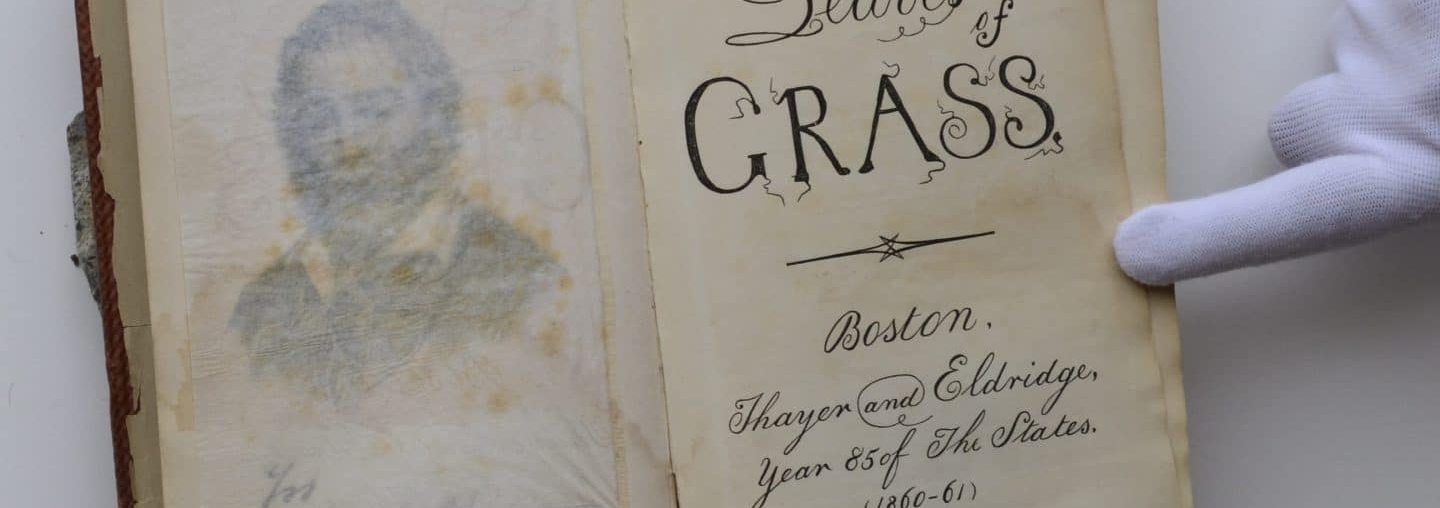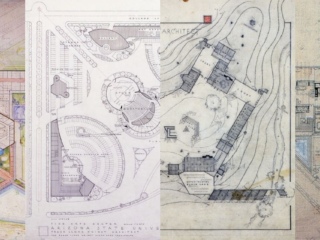
Frank Lloyd Wright’s Personal Notes on Leaves of Grass
Frank Lloyd Wright Foundation | Feb 13, 2017
On Wednesday, October 1, 1952, Frank Lloyd Wright gathered his apprentices for a talk. On this day, like many in the great architect’s life, he was feeling particularly inspired by Walt Whitman’s “Leaves of Grass” and decided to share his enthusiasm with the apprentices.
He read aloud from an 1860 edition of the book given to him by the staff of Architectural Forum, following the publication of their January 1948 monograph of Wright’s work. In the photo below, you see artwork created for the monograph, which was pasted by the Forum staff on the inside cover of the book.
In A Testament, Wright calls Whitman a “Seer of Democracy,” explaining that “[t]he terms of democratic salvation may only be found deep within man himself by his comprehension of the basic principles of nature and of his own human nature.” He encouraged his apprentices to find this same understanding of nature in themselves. “I suppose every great artist has that same conviction, whether he expresses it as well as Whitman did or not,” he told them. “But he feels it, he has it in his soul, and it can’t be taken away from him no matter what happens.”
On the Collections Tour at Taliesin West, we bring visitors into the vault to see a selection of great artifacts from Wright’s collection, including his treasured copy of “Leaves of Grass.” In the photo below, we invite you to view some pages from the book to see where Wright wrote in the margins, and—yes, at times—edited the words of the author who inspired so much of his work.
He hoped these words also inspired his young apprentices, telling them, “A man like this has been such a great tower of strength, such a tremendous inspiration to all the artists that ever met him, that have ever known him. It is a good thing to read him once in a while. That’s why I brought it up.”
This article originally appeared in the Fall 2016 issue of the Frank Lloyd Wright Quarterly, “And Thou America: On Wright’s Democratic Ideals.”





